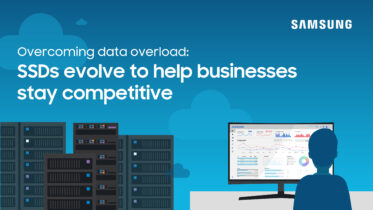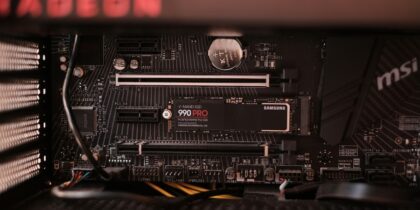With thousands or even millions of users streaming videos and other content through content delivery networks (CDNs), server and SSD uptime are critical factors in maintaining user satisfaction.
CDNs store content in local servers near the end user, ensuring smooth performance without latency to deliver real-time content like videos and music to consumers with minimal transmissions. The drawback to the solution is that it requires one or more CDN server in every point of presence (POP) in an ISP’s network — as many as one per neighborhood, all over the country or even the world.
With so many servers working around the clock to maintain consistent reliability, what happens if one goes down — and how can that be prevented?
Maximizing SSD Uptime
When downloads stop working, users not only complain — they cancel service or switch to competitors, so there is considerable motivation for administrators to ensure the maximum possible reliability. Of course, pricing that’s higher than competitor’s will have the same results, so they must also keep costs down.
This requires a specialized content storage solution, like the Samsung 860DCT, an affordable SSD optimized for CDN applications that combines low-cost storage with enterprise-class features and high SSD reliability.
Discover the Cost Advantages of SSDs
Read this white paper on the total cost of ownership advantages of using SSDs. Download Now
The 860DCT was developed to meet a specialized type of application. Enterprise-class SSDs are engineered to handle constant heavy loads, but they are over-engineered for the demands of a content delivery network. While there are many applications that can take advantage of a throughput as high as 5,000MB/s and 250,000 IOps, CDNs aren’t generally among them. With their typical use of sequential read operations and low write counts, they don’t require that level of performance. Besides, the cost of the NVMe SSDs is much higher than SATA drives, so the ideal solution is a hybrid of a less-expensive consumer SATA SSD with a controller designed for CDNs.
Enter the 860DCT
The 860DCT is based on Samsung’s consumer SSD technology with an enterprise-class controller and the enterprise toolkit for managing the controller. A Linux smartmontools package, with utilities such as smartctl and smartd, allow administrators to monitor drive temperatures and other SMART (Self-Monitoring, Analysis and Reporting Technology) attributes on the drives. The admin can also take advantage of an extended set of SMART commands to monitor and control drive settings and ensure reliability, even if airflow through the server is lost or temperatures in the data center spike.
In addition to the optimized controller firmware and software toolkit, the 860DCT also contributes to SSD and server reliability through the low amount of heat produced by the drive, the lower power consumed, and the ability to handle higher temperatures than most SSDs — as high as 85 degrees Celsius, with thermal throttling beginning at 83 degrees Celsius, to allow continued functionality even in extreme heat.
The 860DCT is also optimized to deliver maximum performance in the typical 90 percent read, 10 percent write environment of a CDN. While there may be a temptation to use consumer-grade SSDs for this application, the performance degradation will offset any potential cost savings of such an approach, with read latency increasing even over a few months — and it will also void the manufacturer’s warranty if used in a 24/7 environment. The 860DCT is designed to deliver high SSD reliability and full-speed, 550MB/s reads over its lifetime, even in a data center environment with thousands of concurrent users — with warranty intact.
Admins seeking a reliable, easy-to-maintain SSD with the ability to run 24/7 at full capacity in a CDN environment will find much to like in the Samsung 860DCT. It combines high performance, reliable operation, and an excellent price point — so you can spend less time worrying about server latency and downtime, and more time expanding your network.
Find the best storage solutions for your business by checking out our award-winning selection of SSDs for the enterprise.








